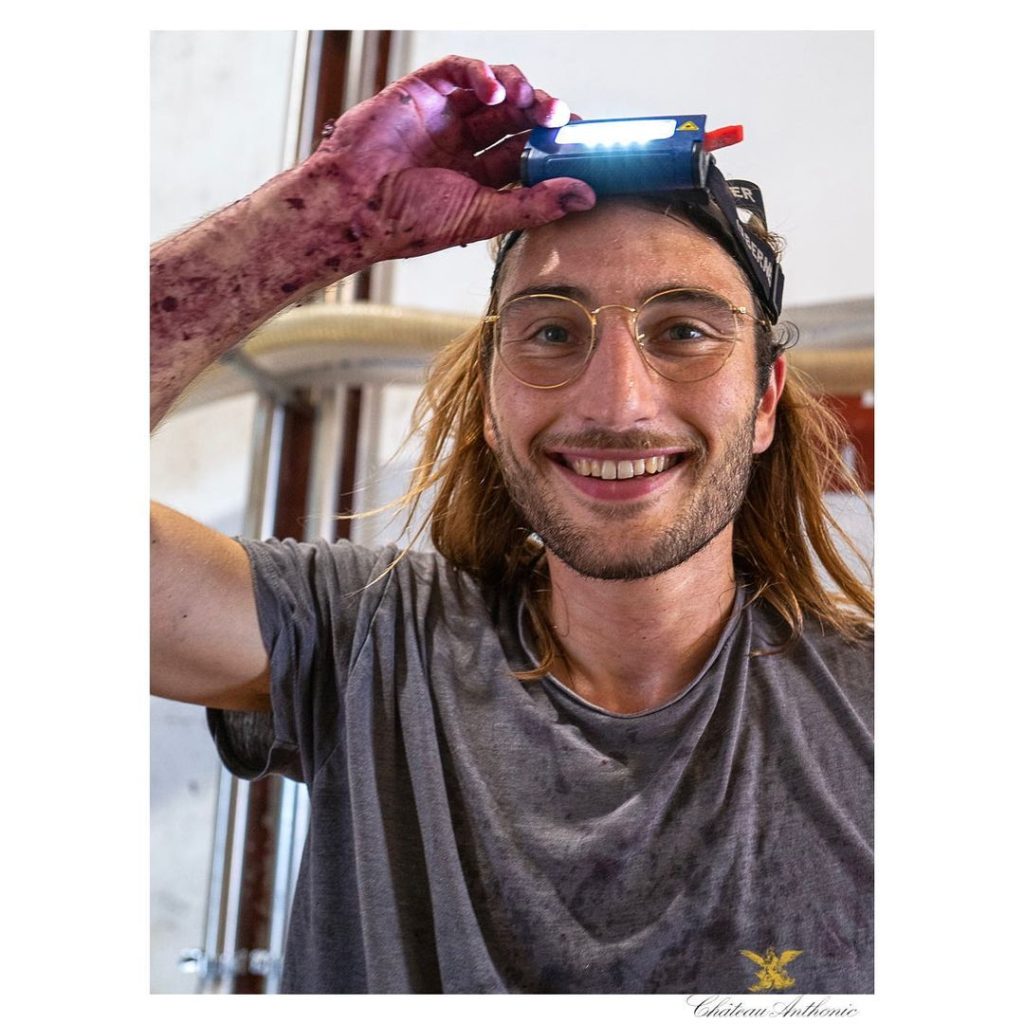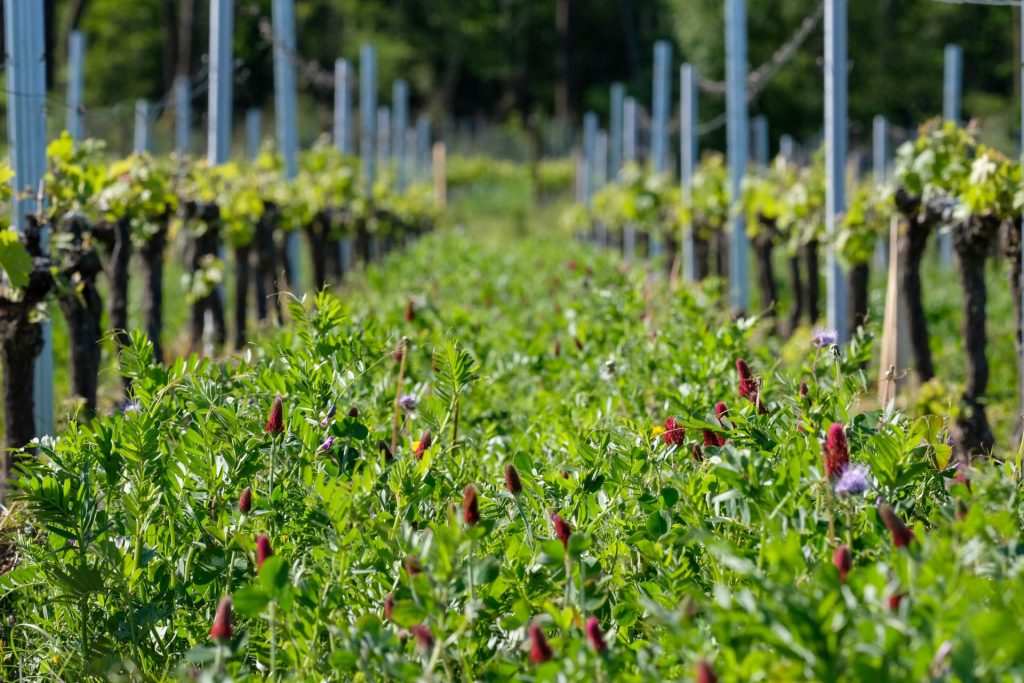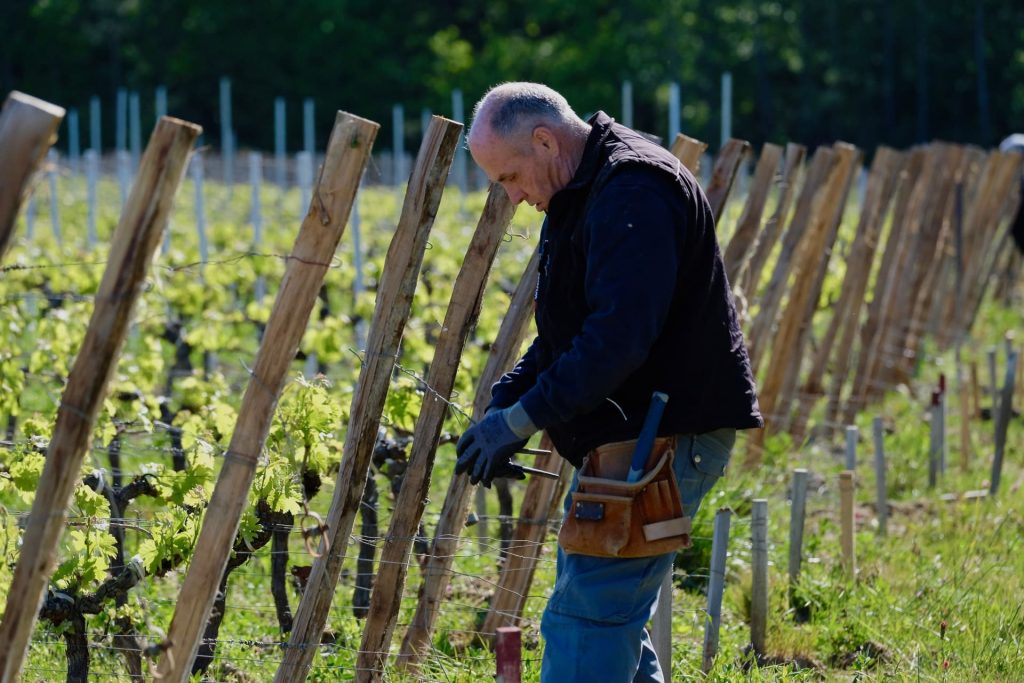Photo credit: Nathalie Coipel
Meet Theophile Cordonnier
Estate: Château Anthonic
Region: Moulis-en-Médoc
Focus: 62% Merlot, 29% Cabernet Sauvignon, 7% Cabernet Franc, 2% Petit Verdot

Photo credit: Nathalie Coipel
Background
Château Anthonic is one of the oldest estates in the Bordeaux appellation of Moulis-en-Médoc, with mentions of the estate tracing back to 1850 in the Guide Féret, also referred to as “the bible of Bordeaux.” The property was designated Cru Bourgeois Supérieur in 1932, which signifies reliable, high-quality wines, and then was certified organic in 2019 thanks to the sustainability efforts of the Cordonnier family. Château Anthonic was also the first vineyard in the Médoc region to introduce agroforestry in 2017.
Jean-Baptiste and Nathalie Cordonnier are the current proprietors, having taken over the family business in 1993. Their son, Théophile, joined the château in 2020 after graduating from the IÉSEG School of Management in Lille, bringing fresh perspectives and ideas to the business.
Upon his arrival, Théophile took charge of the commercial aspect of wine estate management, growing Anthonic’s export contacts and expanding its distribution throughout Europe and into North America and Asia. He also integrated the estate’s sales and communications to create a holistic business strategy with the support of Château Anthonic’s social media presence, which is run by his mother, Nathalie.

Photo credit: Nathalie Coipel
Vineyards
Just an hour northwest of the Bordeaux city center is Château Anthonic, a 69-acre wine estate situated squarely in the Moulis-en-Médoc sub-appellation. The soils of the Moulis plateau upon which Anthonic sits are composed of clay and limestone, with sparse patches of sandy clay and Garonne gravel; this unique, diverse terroir produces complex quality wines. Château Anthonic averages 2,800 vines per acre, and the average age of their vines is 20 years old.
Since Théophile’s return nearly five years ago, Château Anthonic has gone through a massive transformation. With the introduction of agroforestry—planting trees among the vines to promote a flourishing, fertile, biodiverse ecosystem—Anthonic has cemented itself as one of the leading organic, agro-ecological wine estates in Bordeaux.
The estate became Certifié Agriculture Biologique in 2019, meaning no herbicides or pesticides are used on the vines. Agro-ecological techniques are used, including the creation of rock piles throughout the vineyard, plant cover on the soils and late cutting of grasses to promote diversity of wildlife.

Photo credit: Nathalie Coipel
Wines
Château Anthonic takes “quality over quantity” seriously. It produces only two wines: Château Anthonic, a rich, structured red blend; and Les Aigles d’Anthonic, a short-aged, 100% Merlot, wine meant for immediate consumption. Due to the estate’s majority clay-limestone soils, Merlot is the main grape variety produced by Anthonic (67%), though it does grow Cabernet Sauvignon (29%), Cabernet Franc (7%) and Petit Verdot (2%).
Merlot is so intrinsic to Château Anthonic’s identity that Théophile refers to it as the estate’s soul—and it has no plans to change that any time soon: “Nous désirons conserver notre âme; We want to keep our soul.”

Photo credit: Nathalie Coipel
Explore more from Château Anthonic’s U.S importer, Colette Imports
Thirsty for more? Follow Clink Different’s Instagram and Facebook to stay up-to-date on the latest blogs and upcoming events.
